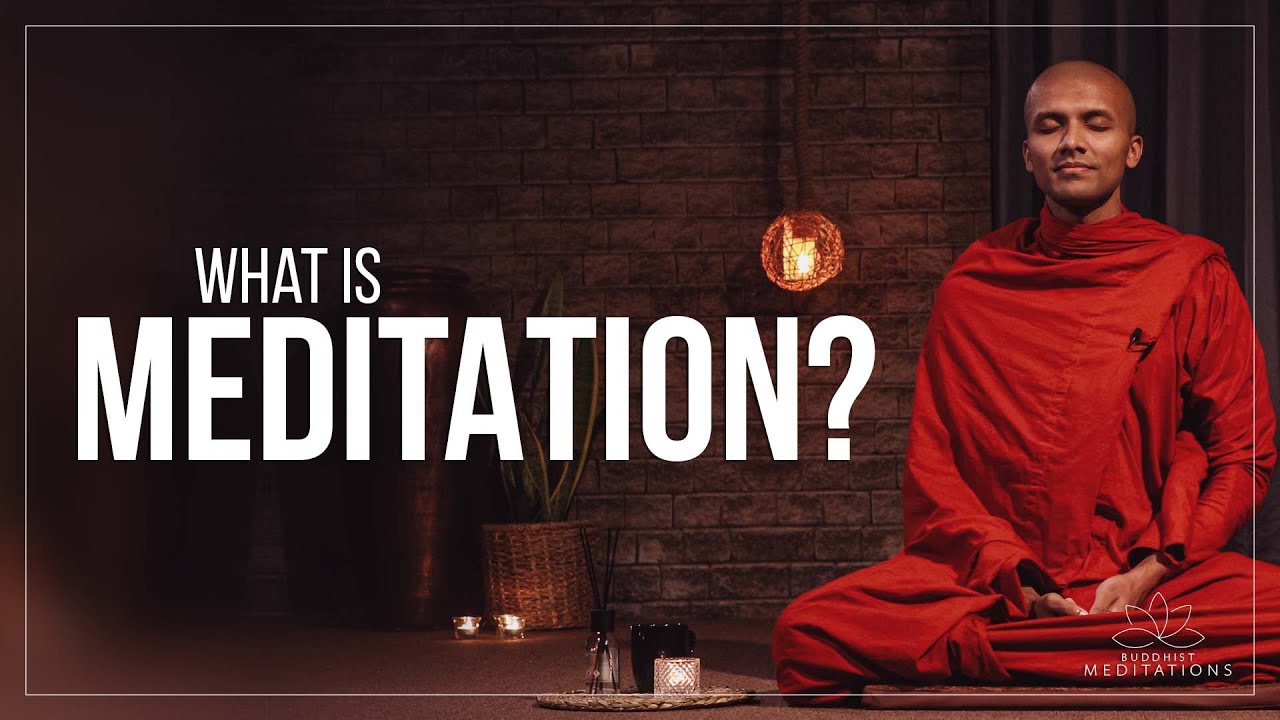What is Merit ? Buddhism In English
Summary
TLDRIn this video, the speaker explains the Buddhist concept of Merit, which is closely tied to happiness. Merit, defined as good deeds, brings positive karma and happiness into one's life. The Buddha emphasizes three key practices for accumulating Merit: Dana (generosity), Sila (virtue), and Bhavana (meditation). By regularly engaging in these practices, individuals not only contribute positively to the world but also cultivate inner peace and joy. The speaker encourages viewers to incorporate these practices into their daily lives to collect Merit and achieve lasting happiness.
Takeaways
- 😀 Merit is synonymous with happiness in Buddhism.
- 😀 To achieve happiness in life, one must engage in meritorious actions.
- 😀 Merits are wholesome deeds performed through body, mind, and speech.
- 😀 The Buddha teaches the practice of three streams of merit for a happy life.
- 😀 The first stream of merit is 'Dana', which means generosity and sharing with others.
- 😀 The second stream is 'Sila', living a virtuous and pure life without evil actions.
- 😀 The third stream is 'Bhavana', which refers to meditation and mental development.
- 😀 By practicing generosity (Dana), a person gains happiness and good karma in return.
- 😀 Living a virtuous life (Sila) leads to the collection of good karma and happiness.
- 😀 Meditation (Bhavana) brings peace and happiness to the mind and is a form of merit.
- 😀 Regularly practicing these three streams of merit will lead to long-term happiness and inner peace.
Q & A
What is the meaning of the word 'Merit' in Buddhism?
-In Buddhism, 'Merit' is synonymous with happiness. It refers to the accumulation of good karma through virtuous deeds, which lead to personal happiness and well-being.
Why does the Buddha encourage us to repeat good deeds?
-The Buddha encourages repeating good deeds because Merit, which is equal to happiness, increases with repeated actions. By engaging in virtuous acts consistently, we accumulate more happiness and good karma.
What are the three streams of Merit in Buddhism?
-The three streams of Merit in Buddhism are: Dana (generosity), Sīla (virtuous living), and Bhāvana (meditation). These practices contribute to both personal happiness and the accumulation of good karma.
What is Dana, and how does it contribute to Merit?
-Dana refers to generosity or giving. When we share our belongings with others or help those in need, we generate good karma, which contributes to our overall happiness.
How does living a virtuous life (Sīla) contribute to Merit?
-Living a virtuous life involves avoiding harmful actions of body, speech, and mind. By practicing purity in these aspects, we accumulate Merit and good karma, which leads to happiness.
What is the role of meditation (Bhāvana) in accumulating Merit?
-Meditation (Bhāvana) is a practice that cultivates inner peace and mindfulness. By meditating, individuals develop a peaceful mind and generate positive karma, contributing to both mental and emotional happiness.
How do the three streams of Merit work together?
-The three streams of Merit—Dana, Sīla, and Bhāvana—work together by promoting generosity, virtuous living, and mental peace. Practicing all three not only helps accumulate good karma but also leads to long-term happiness and fulfillment.
Why is it important to collect Merit in life?
-Collecting Merit is important because it leads to happiness and the accumulation of good karma. By engaging in wholesome deeds, individuals not only benefit others but also experience positive changes in their own lives.
How can practicing these three streams of Merit affect one's life?
-Practicing generosity, virtuous living, and meditation creates a positive cycle of happiness and well-being. These practices help individuals live a more peaceful, content life and develop a sense of self-satisfaction.
What practical steps can someone take to begin accumulating Merit?
-To begin accumulating Merit, one can practice acts of generosity (helping others), live a virtuous life (avoiding harmful actions), and meditate regularly. These steps should be taken consistently, even if only once a day, to start generating positive karma.
Outlines

Esta sección está disponible solo para usuarios con suscripción. Por favor, mejora tu plan para acceder a esta parte.
Mejorar ahoraMindmap

Esta sección está disponible solo para usuarios con suscripción. Por favor, mejora tu plan para acceder a esta parte.
Mejorar ahoraKeywords

Esta sección está disponible solo para usuarios con suscripción. Por favor, mejora tu plan para acceder a esta parte.
Mejorar ahoraHighlights

Esta sección está disponible solo para usuarios con suscripción. Por favor, mejora tu plan para acceder a esta parte.
Mejorar ahoraTranscripts

Esta sección está disponible solo para usuarios con suscripción. Por favor, mejora tu plan para acceder a esta parte.
Mejorar ahoraVer Más Videos Relacionados

What is Meditation..? | Buddhism In English

Cyclical Unemployment

What is MATERIAL CULTURE?! Anthropology Student Explains Archaeological Theory, New Archaeology, Etc

February 13, 2025

What does it mean to be happy in life? | Buddhism In English

Introduction to Assembly Language Programming Tutorial in Urdu Hindi | best intro
5.0 / 5 (0 votes)
